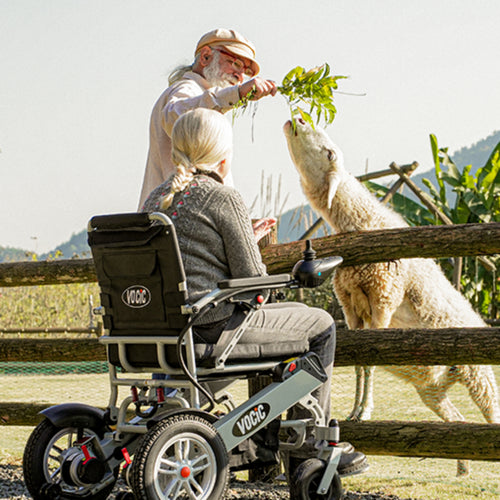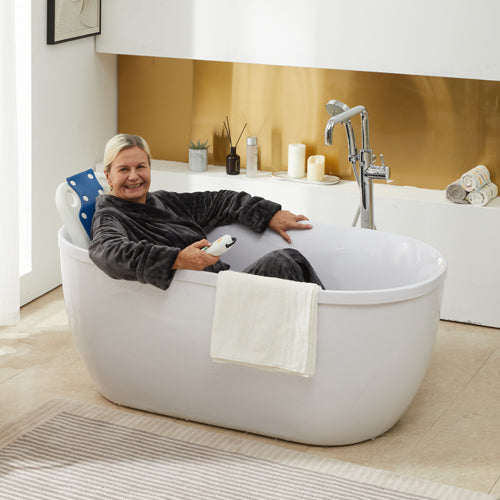"I had to structure my whole day around when and how I could get to the toilet," Rebecca shares. “The hardest part was asking my daughter to help me off the seat. We both acted like it was nothing, but I saw the sadness in her face.”
Living with a spinal injury meant more than limited movement—it also brought a heavy emotional weight. Rebecca began to avoid drinking water at night, just to skip bathroom trips. Each visit became a production: find a helper, grab the transfer board, manage the awkward shifts. “It wasn’t just inconvenient—it made me feel like a guest in my own body,” she says.
When her physical therapist first mentioned the VOCIC AX12 Electric Toilet Lift Seat, Rebecca hesitated. “I had already tried several products—seat risers that felt shaky, lifts that needed too much upper body strength. I figured this would be more of the same.”
But desperation outweighed skepticism. Quietly, without telling anyone, she ordered the AX12.
The results surprised her from the first use. The lift’s smooth electric motion required no effort—just a press of a button. “It wasn’t just about rising—it was about rising without fear,” she says. The sturdy design gave her confidence again. "For the first time in years, I didn’t have to plan my day around the toilet. I could just… go."
The emotional shift was just as powerful. “Mom stopped skipping movie nights with the family,””her daughter says. “She wasn’t worried about what would happen afterward.” For Rebecca, it was the quiet victories that mattered most: “Waking up, using the bathroom without disturbing anyone—that was the moment I knew things had changed.”
Her experience opened her eyes to how many mobility aids fall short—not just physically, but emotionally. “Many tools help you move, but not many help you feel like yourself again,” Rebecca says. “The AX12 gave me control over something I thought I had lost forever.”
Even when she needed help with setup, the experience remained respectful. “Logan from customer service didn’t make me feel small or clueless. That kind of support matters more than people realize.”
Now, Rebecca encourages others to expect more from assistive devices. “Don’t just settle for what works,” she says. “Look for what restores who you are. The right tool should do more than function—it should help you feel human again.”







